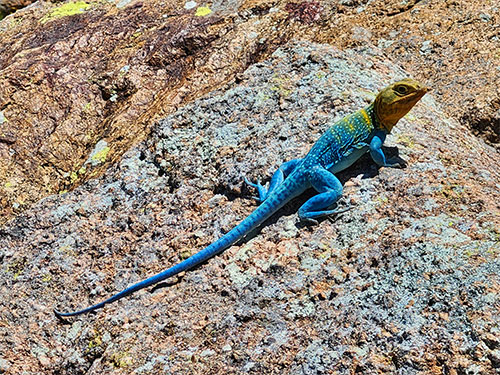
More Exhibit Areas
Devon Great Hall
On display in the Devon Great Hall is a replica of Wiley Post’s world-famous Winnie Mae airplane. The Winnie Mae was a seven-passenger Lockheed Vega. In 1931 Wiley Post flew the around the world in a record-setting eight days as pilot of the Winnie Mae.

Chesapeake Event Center and Gallery
Museum Staff Picks
Museum Staff Picks, an exhibit highlighting a collection of photographs personally picked by staff members, is now on display at the Chesapeake Event Center and Gallery in the Oklahoma History Center Museum. All of the photos featured have been chosen or taken by museum staff members. This unique installation offers a view of individual aspects of Oklahoma’s history and culture, seen through the eyes of museum staff who have picked their favorites from the collections they work with every day and some who have a passion for photography. The exhibit will be on view through June 30, 2025.
The Chesapeake Event Center is used for meetings and events. To ensure the room is available for viewing during your visit, please call 405-522-0765.

Collard Lizard, Wichita Mountains National Wildlife Refuge, Comanche County, Oklahoma, photo by Leon Natker, director of the Oklahoma History Center Museum
West Atrium Gallery
75 Years of Television in Oklahoma
On June 6, 1949, at 7 p.m., WKY-TV went on the air, introducing television to Oklahoma audiences. At the time, television was a new medium, touted as “a modern miracle” by The Daily Oklahoman newspaper. While technicians and photographers grappled with cameras and equipment, reporters wrote and rehearsed their scripts to make the newest means of communication a reality. Those early industry pioneers were on the cutting edge of producing television news, providing weather and tornado alerts, and tracking the achievements of the state’s teams and athletes.
Ten years earlier, crowds had come by the thousands to the Municipal Auditorium in Oklahoma City on November 13, 1939, to see the first television images in Oklahoma at a demonstration sponsored by WKY Radio. Despite television being a financial drain on broadcasters who had tried it before, E. K. Gaylord believed the medium would be popular with viewers, so he applied for a license and was granted the first station in Oklahoma.
As Oklahoma began the new venture, the invention of television became a real turning point in American culture, effectively improving the economy and creating a paradigm shift in how people experienced entertainment and shared information. When television was in its infancy in the state, programming sometimes ended at 7 p.m. due to the limited programming. The new trend brought entertainment to life in people’s living rooms with moving pictures. Singers, entertainers, and performances were suddenly brought to life on the small screen that could only previously be seen in an auditorium or heard on the radio.
Technicians, engineers, programmers, writers, art directors, and costume designers collaborated to popularize locally generated personalities of the 1950s and 1960s, such as Foreman Scotty, 3-D Danny, The Tom Paxton Show, Bud Wilkinson, and many other local favorites. This exhibit features a collection of images from early post-war black-and-white sets that revisit the era when a generation of Baby Boomers was raised on the innovative creativity of television.

Space Girl, Danny Williams as Dan D. Dynamo, and Bazark the Robot set of the Space Science Center (Bill Thrash Collection, OHS).
Oklahoma Family Tree
On permanent display in this area is the Oklahoma Family Tree. This sculpture was created by artist Robin Starke and depicts three redbud trees with gold and silver leaves. Each leaf of the Oklahoma Family Tree memorializes an Oklahoma family with the family surname, first name(s), and the town or county in which they lived. A brief family history is preserved in a touchscreen at the base of the tree and on the OHS website. Explore family histories online or find out about commemorating your family’s name on the tree.
The Oklahoma Family Tree is sponsored by the 1889ers Society, the Oklahoma Genealogical Society, and the Mabrey Family.






